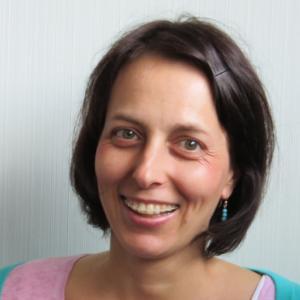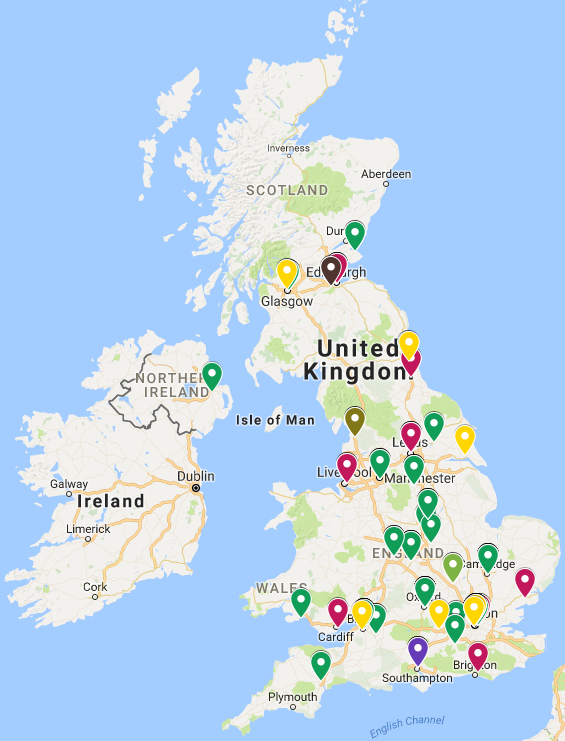Map of Doctoral Training Centres in the UK
Posted on 1 December 2016
Map of Doctoral Training Centres in the UK
Centres for Doctoral Training (CDTs), also called Doctoral Training Centres (DTCs), are one of the several ways by which research councils in the UK provide support for advanced, high-level and increasingly interdisciplinary scientific training following undergraduate studies.
Some of the CDTs may require training in basic software development skills in order to help scientists improve or speed up their research, ensure that their results are more reliable and verifiable, encourage sharing code and collaboration with others and aid reproducibility overall. For this reason, the Institute was interested in finding out the details of CDTs (supported by our funding organisations and close collaborators - EPSRS, BBSRC, ESRC, NERC and AHRC), including:
- their training strategy
- how many students are in their cohorts each year
- when did the first cohort start and when will the last cohort start
- how are they spread geographically
As the Institute already has multi-year training agreements with some CDTs relating to running and coordinating Software Carpentry (SWC) and Data Carpentry (DC) workshops, we were also interested to identify other such centres, as they were likely to be interested in either helping with setting up regional training centres or setting up their own software training.
The task of collecting details of CDTs was made easier by using information available in RCUK’s Gateway to Research, a website which provides information relating to publicly-funded research and training projects (and APIs to access that information programatically). Only a few adjustments had to be done manually (for missing, newly-announced centres) by looking directly on funders’ websites. The code to extract the data is available on GitHub, while the data extracted is publicly available as a spreadsheet and also plotted and viewable as an interactive map on Google Maps.
Note that the data used to create the map was correct as of December 2016 (but with time may get slightly off as new centres are announced occasionally).


